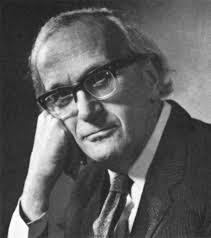
This is the second in an occasional Zealous series exploring major legal philosophers, with the aim of demonstrating why their ideas should matter to anyone who currently practices law.
We turn now to H.L.A. Hart (pictured), the philosopher whose question Ronald Dworkin spent his career trying to answer: What is law, and does it have any necessary connection to morality?
H.L.A. Hart (1907-1992) was the most influential legal philosopher of the twentieth century. After graduating from Oxford with first-class honours in Literae Humaniores (Oxford's Classics degree, famously referred to as "Greats"), he qualified as a barrister and practiced at the Chancery Bar before World War II interrupted his career. During the war, Hart served in British intelligence (MI5), working alongside figures including Alan Turing and future MI5 Director-General Dick White. He never returned to practice, instead accepting a philosophy fellowship at Oxford, where conversations with ordinary language philosopher J.L. Austin redirected his intellectual energies toward law.
In 1952, Hart was elected to Oxford's Chair of Jurisprudence (a position established in 1869). The lectures he delivered over the next decade became The Concept of Law (1961), widely recognized as the most important work of legal philosophy published in the twentieth century. His other major works include Causation in the Law (1959, with Tony Honoré), Law, Liberty and Morality (1963), and Punishment and Responsibility (1968).























